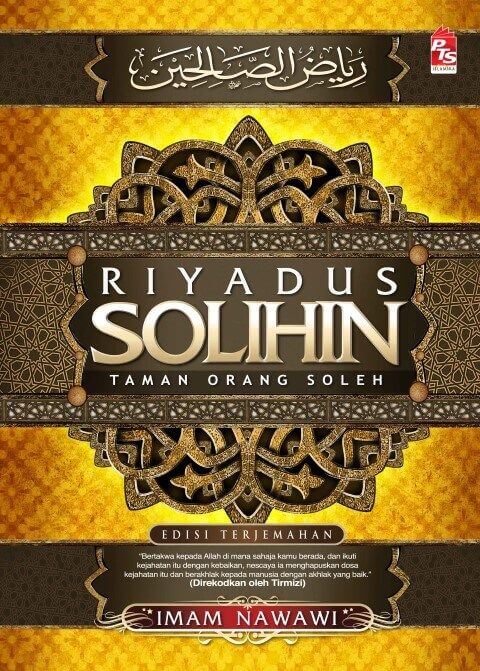RAMADHAN, the ninth month of the Muslim calendar is also commonly known as the fasting month. During this month, muslims abstain from eating and drinking from sunrise to sunset besides observing other religious do's and don'ts. But Ramadhan is more than just fasting.
It is a holy month where good deeds can earn multiply rewards, and past sins are forgiven. Done right, Ramadhan teaches the virtues of patience, tolerance, compassion, and moderation, among others. It is an opportunity to practise self discipline, to cleanse the body and mind, to ask for forgiveness, and to forgive and forget. And in this sacred month, fasting also helps Muslims to feel at peace. This comes from spiritual devotion, as well as brotherhood with fellow believers and a sense of solidarity with fellow non-Muslims.
During Ramadhan, it can also be a period when individual productivity increases.
From young children to college students, the practice of waking up earlier than normal for Sahur (this happens between 4.30am and 5.30am) offers them several hours after that to work on their studies when their minds are fresh and alert.
Adults, meanwhile, tend to go to work earlier during Ramadhan. They skip all the routine tea breaks and long lunches, and focus on the work at hand. In return, they also leave earlier, in time to stop by the many Ramadhan bazaars that sprout up this time of year.
Some companies are aware of this trend and even adjust official working hours during Ramadhan.
For those working in the service industry, adhering to the principles of Ramadhan means they should be more polite, patient and obliging than usual. As a result, overall performance should improve.
Of course, this is the ideal scenario and assumes that Muslims follow and take advantage of the opportunities that the holy month presents them.
Here is a check-list to be great a Muslim during Ramadhan:
1. Make a resolve to win the maximum favour of Allah by performing extra voluntary prayers (Nawaafil), making frequent doa and increased remembrance (Zikir).
2. Try to recite Holy Quran after every prayer. In fact if you read 3-4 pages after every Prayer you can easily finish the entire Quran in Ramadhan!
3. Study the Tafseer (commentary) every morning.
4. Invite a person you are not very close with or your relatives to your home for Iftaar. You will notice the blessings in your relationships!
5. Bring life to your family! Every day, try to conclude the fast with your family and spend some quality time together to understand each other better.
6. Give gifts on Eid to at least 5 people: 2 to your family members, 2 to your good friends, and 1 to a person whom you love purely for the sake of Allah.
7. Join Islamic study circles to learn more about Islam and improve your own life.
8. Donate to the mosque, Islamic organisations, and where people are in need or oppressed. "Because Ramadhan, is a month of sharing!"
9. Share month of Ramadhan and its teachings of peace and patience with your neighbours.
10. Sleep little, eat little! Make sure you do not defeat the purpose of fasting by over-indulging in food and being lazy.
11. Seek the rare and oft-neglected rewards of the night better than 1000 months (Laylatul-Qadr/Shab-e-Qadr).
12. Weep in private for the forgiveness of your sins: Ramadhan is the month of forgiveness and Allah's Mercy! It's never too late.
13. Learn to control your tongue and lower your gaze. Remember the Prophet's (pbuh) warning that lying, backbiting, and a lustful gaze all violate the Ramadhan fast!
14. Encourage others to enjoy and love goodness, and to abandon everything that Allah dislikes. Play the role of a Da'ee (one who invites to Allah) with zeal, passion, and sympathy.
15. Experience the joy of Tahajjud prayers late at night and devote yourself purely and fully to Allah in the Iktikaf retreat during the last 10 days of Ramadhan.
In some cases, the opposite can happen.
Those who choose to go back to bed after Sahur might oversleep, wake up late and end up tired during the day. They would doze off during classes and meetings.
If they miss Sahur completely, they could be cranky the whole day due to their empty stomachs. That could lead to impatience and rudeness.
There are also those who perceive Ramadhan as a time to naturally slow down (in school, work, and life) and expect others to accept it. This is a flawed argument, and ignores the historical evidence of great battles being fought and won in the fasting month during Prophet Muhammad's time. Imagine if they took things easy then!
The bottom line is that it's all about choices. How does one approach Ramadhan? That is up to each individual Muslim to decide.
Why
fasting is a good option?
THERE has been
much contention in the scientific field about whether or not fasting is
beneficial to us. Fasting means, to abstain from all or some kinds of food or
drink. During the absence of food, our body will systematically cleanse itself
of everything except vital tissue. Fasting technically commences within the
first twelve to twenty-four hours of the fast. A fast does not chemically begin
until the carbohydrates stored in the body begin to be used as an energy
source. Human fat is valued at 3,500 calories per pound. Each extra pound of
fat in our body is enough to supply for one day of hard physical labour. So,
most of us have sufficient reserves, capable of sustaining us for many weeks.
The benefits of
fasting can be seen by looking at how our body works when it doesn't get food.
Caused by the lack of incoming energy, our body will use its own resources, a
function called autolysis. Autolysis is a procedure of breaking down fats
stored in the body in order to produce energy. Our liver and kidney will
convert these fats into a chemical known as Ketone bodies (three water soluble
compounds) and distribute it throughout the body via the blood stream to
energise our heart and brain.
The human body
has many modes to eliminate toxins: the liver, lungs, kidneys, colon and when
these are overloaded, the body will resort to "extraordinary" methods
like boils, mucous and other discharges, sweats, vomiting, diarrhoea, and many
others. Should elimination be impossible or uneconomical to the body, the toxic
overload will go into storage in the joints, vessels, muscles, organs and any
tissue in the body. The first stage of cleansing will remove large quantities
of waste. The first few days of a fast can be rough due to the quantity of
waste passing into the blood stream. The tongue becomes coated and the breath
foul as the body excretes waste through every opening. The second stage is the
cleansing of mucous, fat, diseased and dying cells, and the more easily removed
toxins. As the fast continues, the cleansing process becomes more thorough.
Rest is a big
factor in enhancing recovery. It is when the body is at rest that it is able to
direct the most energy towards the various chemical and mechanical processes of
detoxification. Detoxification is a body process of eliminating or neutralising
toxins through the colon, liver, kidneys, lungs, lymph glands, and skin. This
process is precipitated by fasting because when there is no food entering the
body, the body turns to fat reserves for energy. When fasting, we experience a
swifter recovery. As the toxic load is reduced, the cell's functions are
enhanced.
Another benefit
of fasting is that we don't use energy to digest our foods so it focuses more
towards our metabolism and immune system. Therefore, when you are fasting,
toxin intake and production is reduced. Anabolic processes like tissue and bone
healing also proceed at a maximal rate during the fast.
Finally, the
most scientifically proven advantages of fasting are the rejuvenated feelings
and extended life expectancy. Nearly everyone who fasts will discover that when
they fasts, they don't feel hungry and are more energetic. Fasting is the
simplest, easiest and most effective way to tell ourselves that we do have the
power to heal and take control of our bodies. This is when the body gets rid of
the toxins that have built up in our fat stores throughout the years. The body
not only heals itself, it also repairs all the damaged organs during a fast.
I wish everyone a blessed Ramadhan, and hope we all make the right choices this year.

















No comments :
Post a Comment